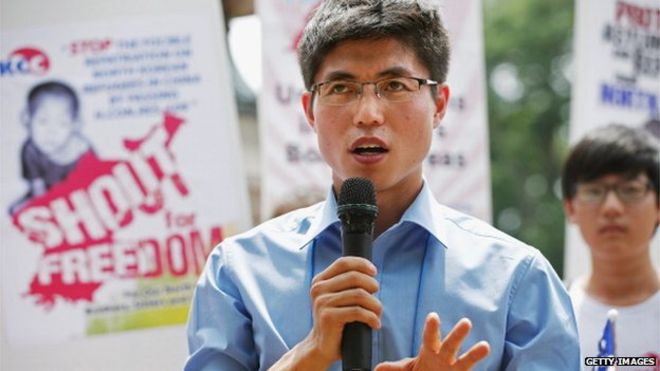The story of Shin Dong-hyuk
June 5, 2019
Shin Dong-Hyuk is a North Korean defector who escaped from Camp 14, aka Kaechon Internment Camp, one of the many camps in North Korea. In North Korea, there is a rule called the “three generations rule”, which means if a person were to commit a crime, the three generations of family that come after them will be punished.
The camp consists of people who are relatives of people who betrayed North Korea or committed bad crimes that put their entire family line in jeopardy. The people who committed the crimes get locked away in these camps and every relative born after them will be born and raised in these camps and endure the suffering and pain that comes with it.
This camp is described as a forced labor camp for political prisoners. Although it is a forced labor camp, the prisoners face more than just forced labor. Torture, execution, malnutrition and fear are what slowly eat at these prisoners and make them miserable for their entire lives of living.
The camp has 10 rules, most of which consist of total compliance to the authority in place or torture, and sometimes death.
Severe torture of prisoners can often lead to death or can prevent them from completing tasks in their jobs, which can lead to disobeying authority, which leads to death.
Prisoners do not get to eat more than once or twice a day, and meals are served at certain times of the day. After the last meal of the day, the prisoners aren’t allowed to eat anything else unless provided to them or they can face punishment.
Some rules state how prisoners cannot be released from work for the day unless everyone at their job has completed their daily tasks. This results in very long hours at work and sometimes crucial overtime hours. Sometimes prisoners only get little sleep at a time before having to start their shifts again the next day.
After many years of surviving on his own ever since his mother’s and brother’s execution, Shin Dong-Hyuk escaped this harsh environment and found help in South Korea.
The ups and downs during Shin’s journey never prevented him from pressing forwards and continuing to survive. Despite not speaking any Chinese, he still found a way to survive in another place until he found help.
Once Shin was able to get on his feet, he began to tell his story of his life in Camp 14 and how much it impacted him as he grew old. Telling his story was a risk to take, but in order to try to help those who are still trapped in Camp 14, Shin became a voice for those who weren’t able to speak. He advocated for prisoners like himself and spoke out against the North Korean government and gathered many supporters as he went.
Shin’s story stays with those who want to make a change, and those who advocate for others that aren’t able to advocate for themselves.






